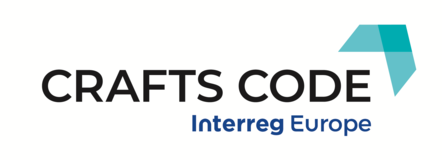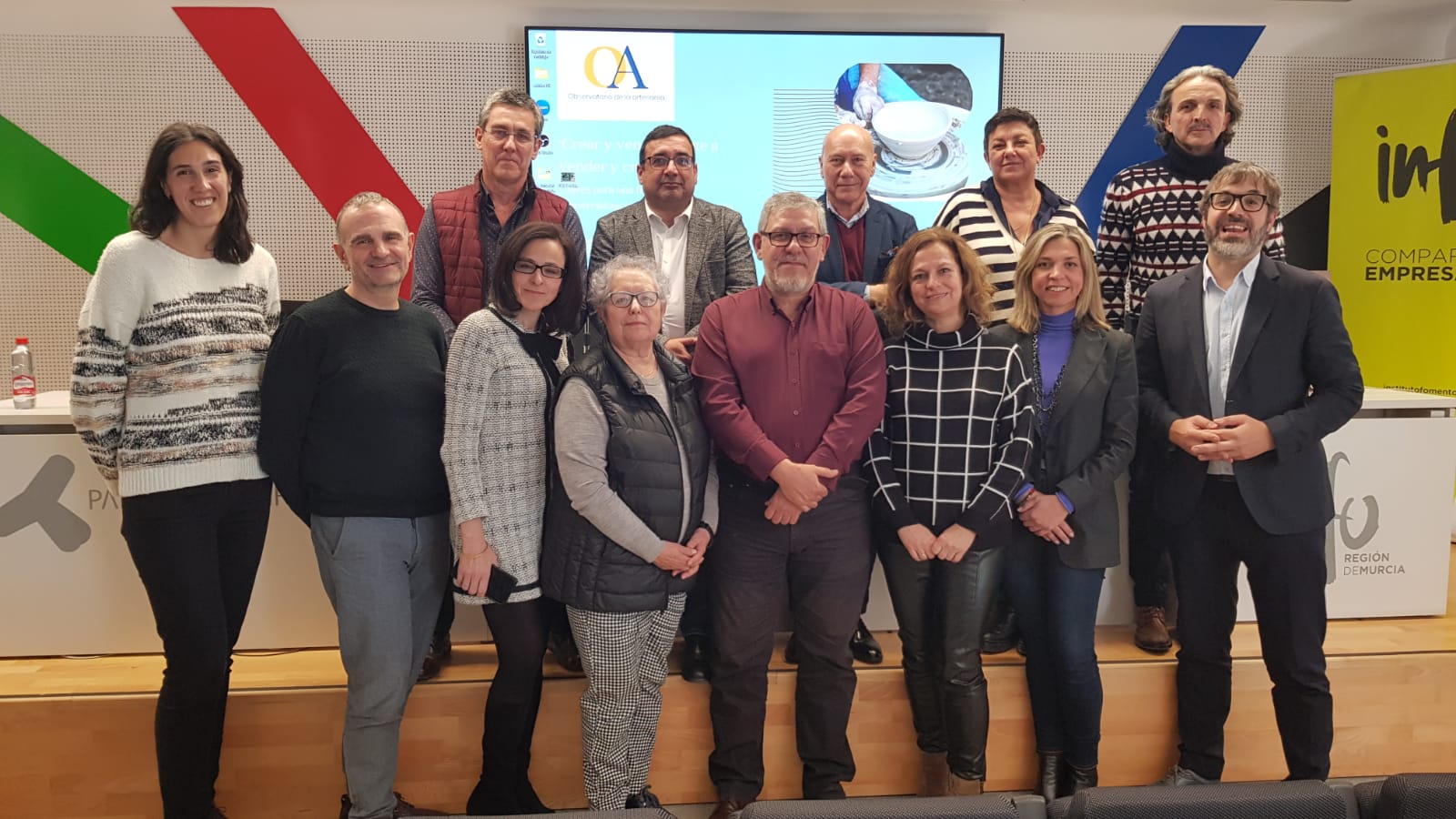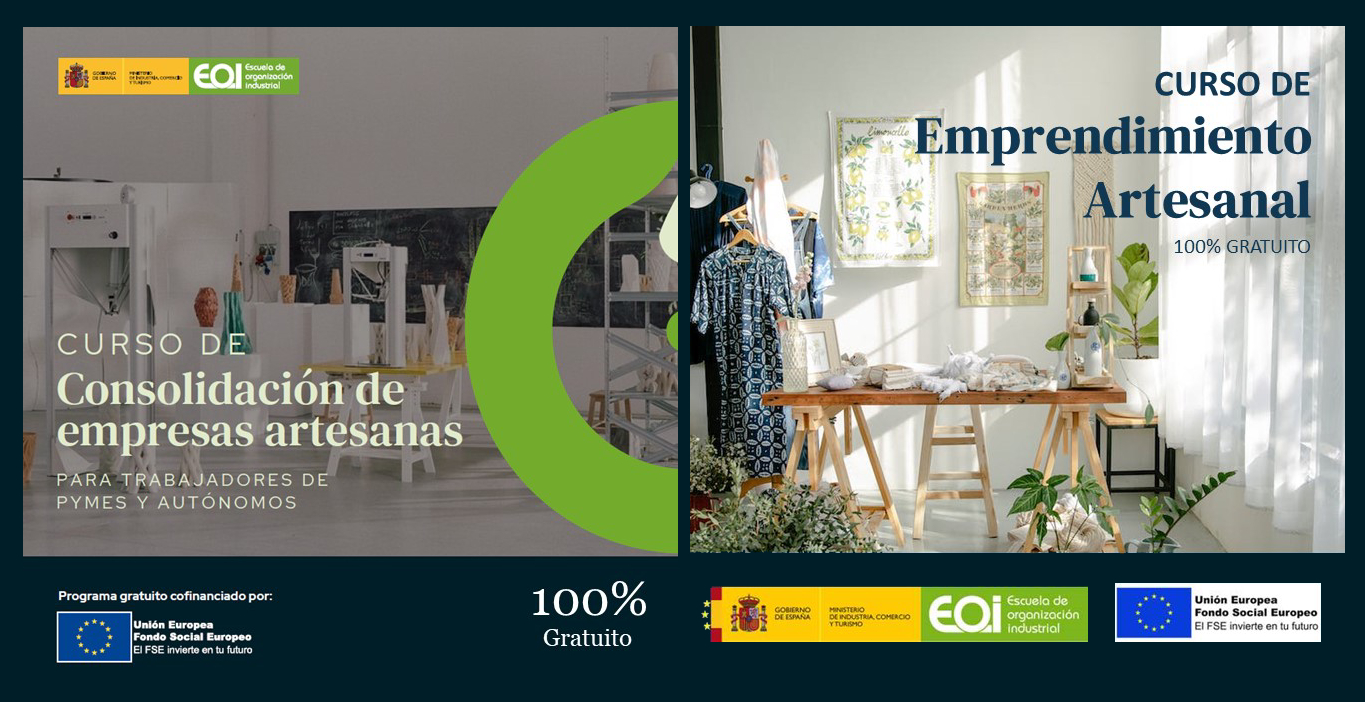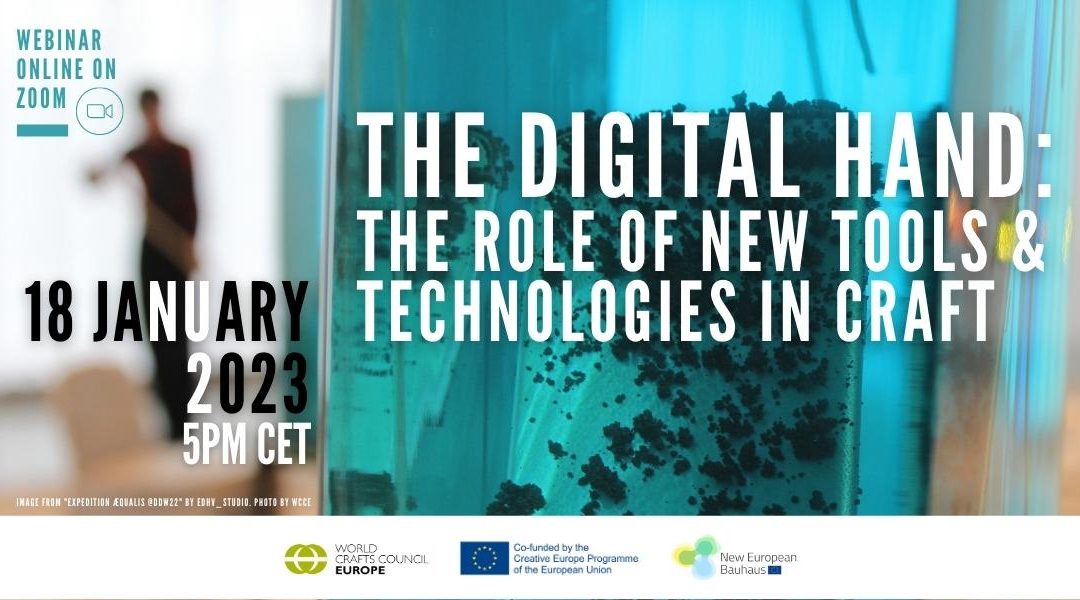On Thursday and Friday (November 18-19, 2021) the fourth interregional seminar of the CRAFTS CODE project took place on the topic of “how to support the craft sector through access to finance”. The event was organised by EOI-Fundesarte in a hybrid format, with online interventions and face-to-face presentations from the EOI facilities located in Madrid.
This virtual seminar presented a selection of good practices on innovative initiatives to access funding in the craft sector in Bulgaria, Ireland, Spain, Italy, Finland, and Hungary. In each of these countries, the project partners previously held meetings with local stakeholders to identify good practices and a selection of such initiatives was shared at last week’s meeting. The agenda for both days can be consulted on the CRAFTS CODE project website.
The European Commission is aware of the problem of the cultural and creative sectors to access funding, as extracted from its study: Survey on access to finance for cultural and creative sectors. One of the obstacles that start-ups face in accessing financing is the asymmetry between the information available to the company in relation to the market, which often leads to the abandonment of entrepreneurship by SMEs.
A key feature of companies in the cultural and creative sectors is that they rely heavily on intangible assets such as copyrights, licenses, and royalties. In addition to the difficulty of properly assessing intangible assets, such as intellectual property rights, creative talent and novelty, the market demand for products and services in the cultural and creative sectors is often very uncertain. The Covid-19 pandemic has even made it more difficult for some craft SMEs in the past year.
Entrepreneurs tend to be more content-oriented than commercial. Lack of business skills and financial support can hamper their ability to develop high-quality business plans or cash flow projections. Public support is very important for cultural and creative entrepreneurship: it can come from direct subsidies, tax incentives, public guarantee systems, loans from public administrations as shown by the examples presented by the project partners and its stakeholders.
Grants covering digitalization processes or marketing campaigns as well the participation at international fairs in different Spanish regions, or a platform which helps with the paperwork in Finland called UKKO as well as hard cash and soft support in order to build resilient businesses in Ireland or non-repayable grants and impact loans for the crafts sector that has been affected by covid-19 in order to consolidate, adapt, renew, innovate and/or reorganise their activities where some of the shared cases.
In the case of Spain, the good practice of European Coworking of EOI was also presented by Eva Curto, a project developed by the EOI Foundation, within the framework of the Operational Program for Employment, Training and Education (POEFE) of the European Social Fund, whose main objective is to promote entrepreneurship. The EOI Foundation together with local Spanish institutions from all over the country have created more than 50 coworking spaces where entrepreneurs can spend the day working on their projects with all the necessary services, meet other entrepreneurs and receive personalized training and advice for 5 months, based on EOI's Agile methodology.
Participants of the seminar also undertook some study visits during their stay, they visited the Tourist Office of Castilla-La Mancha in Madrid, where tourism is very much linked to craft experiences, as well as some integrating and innovative craft shops. On Sunday, November 21st, a small group participated in the ‘Artesania no Prato’ fair in Santiago de Compostela. A fair linking crafts, design, and gastronomy that aims to connect nouvelle cuisine with the brand Artesanía de Galicia (Crafts from Galicia). The participants were shown all the stands of the fair, taking part in the show cooking sessions and enjoyed a private tour in the city of Santiago.
The overall objective of the CRAFTS CODE project, acronym in English for CReative Actions For Tailoring Smes' Competitive Development (creative actions to adapt the competitive development of SMEs), is to improve the competitiveness of SMEs in the craft sector by developing a framework for training policies and lifelong learning activities in collaboration with all stakeholders, as well as improving the implementation of regional development policies and programs that support SMEs at all stages of their life cycle to foster and drive their growth and promote innovation. The project is funded by the Interreg Europe program.











